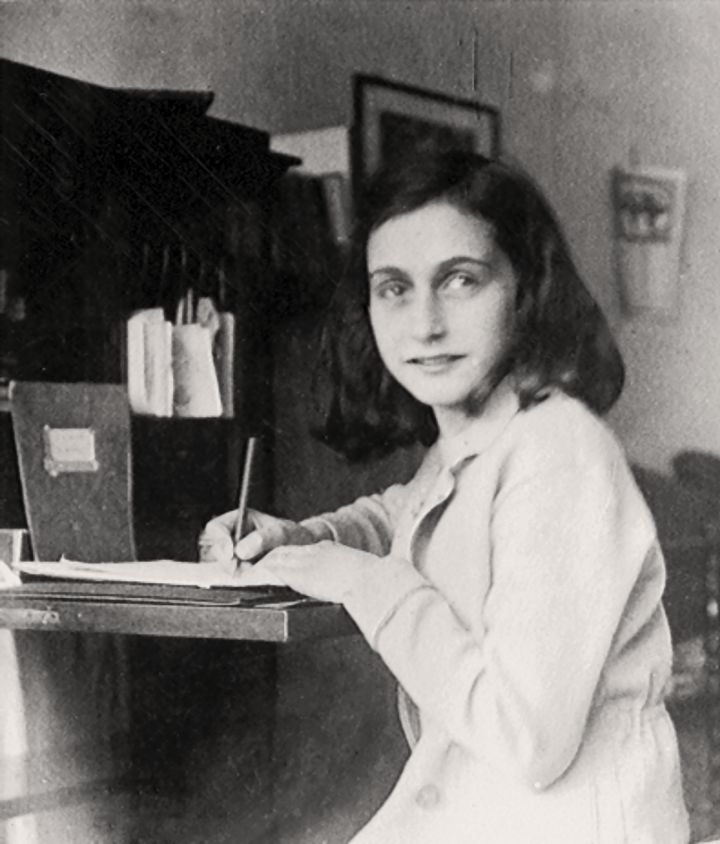
Anne Frank was one of over one million Jewish
children who died in the Holocaust. She was born Annelies Marie Frank
on 12 June 1929, in Frankfurt, Germany, to Otto and Edith Frank.
For the first 5 years of her life, Anne lived with her
parents and older sister, Margot, in an apartment on the outskirts of
Frankfurt. After the Nazis seized power in 1933, Otto Frank and his family
fled to Amsterdam in the Netherlands, where he had business connections.
The Germans occupied Amsterdam in May 1940.
In July 1942, German authorities and their Dutch collaborators began to
concentrate Jews from throughout the Netherlands at Westerbork, a transit
camp near the Dutch town of Assen, near the German border. From
Westerbork, German officials deported the Jews to Auschwitz-Birkenau, a
concentration camp complex in German-occupied Poland.
During the first half of July, Anne and her family
went into hiding in an apartment which would also hide four Dutch Jews as
well - Hermann, Auguste, and Peter van Pels, and Fritz Pfeffer. For two years,
they lived in a secret attic apartment behind the office of the family-owned
business at 263 Prinsengracht Street, which Anne referred to in her diary as
the Secret Annex. Otto Frank's friends and colleagues, Johannes Kleiman, Victor
Kugler, Jan Gies, and Miep Gies, had helped to prepare the hiding place and
smuggled food and clothing to the Franks at great risk to their own
lives.
On 4 August 1944, the Gestapo discovered the hiding
place after being tipped off by an anonymous Dutch caller.
The Gestapo sent them to Westerbork; one month later,
in September 1944, SS and police authorities placed them on a train
transport to Auschwitz. Selected for labor due to their youth, Anne and her
sister, Margot were transferred to the Bergen-Belsen concentration
camp near Celle, in northern Germany in October 1944.
Both sisters died of typhus in March 1945, just a few
weeks before British troops liberated Bergen-Belsen on 15 April 1945.
SS officials also selected Anne's parents for labor. Anne's mother, Edith, died
in Auschwitz in January 1945. Only Anne's father, Otto, survived the war.
Soviet forces liberated Otto at Auschwitz on 27 January 1945.

While in hiding, Anne kept a diary in which she recorded her fears,
hopes, and experiences. Found in the secret apartment after the family was
arrested, the diary was kept for Anne by Miep Gies, one of the people who had
helped hide the Franks. It was published after the war in many languages and is
used in thousands of middle school and high school curricula in Europe and the
Americas. Anne Frank has become a symbol for the lost promise of the children
who died in the Holocaust.
Here you can watch a documentary about Anne Frank and her family.
I don’t want to have lived in vain like most people. I want to be useful or bring enjoyment to all people, even those I've never met. I want to go on living even after mydeath!
I don’t want to have lived in vain like most people. I want to be useful or bring enjoyment to all people, even those I've never met. I want to go on living even after my
No comments:
Post a Comment